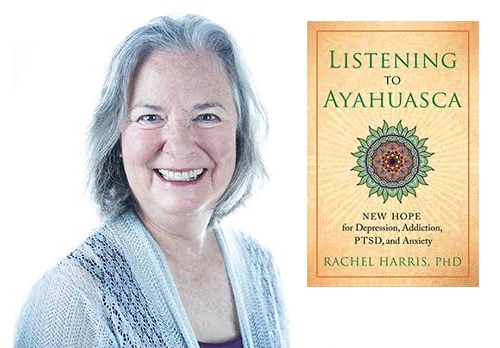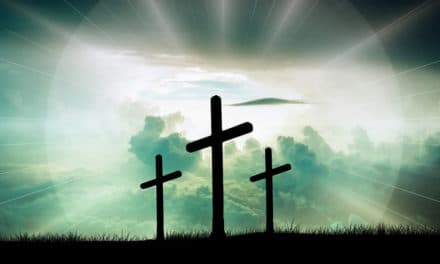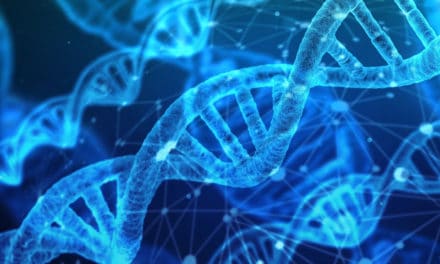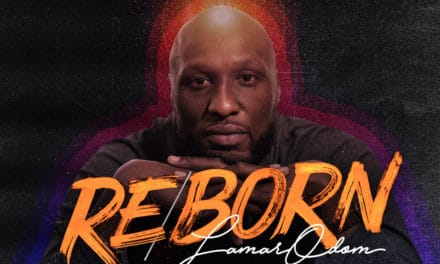
We caught up with Dr. Harris recently and spoke about her 35 years of private psychotherapy practice, her time as Esalen, and her own journey with the mysterious healing vine.
Thank you for taking the time to speak with us Rachel. While your book focuses on the research you’ve done to shine light on other people’s relationships with ayahuasca, I found myself intrigued by your own personal and complex relationship with the plant. I was wondering, do you think your lens of of training in the field of psychology has helped or hindered you in accessing ayahuasca’s messages?
If I had a traditional graduate school experience, it would have hindered it for sure, but I didn’t. I went to Esalen in the late 60’s after I graduated from college, and entered what was then called their residential program. This was an intense 6 month long immersion in psychological, spiritual, and body work for 40-60 hours a week with some of the leading psychologists of the day. Part of the way I avoided the clinical indoctrination that most psychologists get is that when I eventually pursued my advanced degree I chose to focus on research, and in a way protected the therapeutic work that I learned at Esalen which I considered my real clinical training. In my case, my lens as a psychotherapist did not restrict my experience of ayahuasca, but for most people out of graduate school it can be a stretch.
One of the ways that I took so readily to the work that ayahuasca wanted me to do was how I seemed to be uniquely qualified for it. I have a research background and decades of private practice working with people who are on a psychospiritual path, and I saw that I really could contribute. With these rather specific qualifications, I feel called to use all of my experience in the best way possible to assist this area of study.
In the book you talk about being on a mission from ayahuasca while at the same time, as an agnostic scientist, struggling with the ontological implications of being in contact with a plant spirit. What is your current feeling of this dichotomy?
Well you identified the ongoing conflict I have, that is resolved and then unresolved. There was one man I spoke with who was from El Salvador and raised Catholic, and for him listening to ayahuasca was just like listening to the Holy Ghost, he had no conflict! I, however, continue to have some lack of resolution. I’m a very socially malleable person- when I’m around people who believe in and have their own experience of ‘Grandmother Ayahuasca’, I’m right there with them. Then when I’m around someone who is skeptical and says “Do you really believe in this?” I say “Well, yea… maybe?” and I lose it! So it’s difficult.
There’s no question I have built the last decade of my life around this project and in response to what I felt was ayahuasca’s inspiration and calling. And yet, I still feel a little crazy talking about this as if it’s real. Sometimes I’m anxious that the people who believe in ayahuasca as a plant spirit are going to think “Oh she’s hopeless” and then the scientists on the other end will also say “What is she talking about, she is hopeless!”. I have both those sides within me as well. And yet my behavior, my investment, my time commitment, is absolutely all in response to my experience of this voice. So despite this apparent conflict, I’m basing my behavior on my relationship with the spirit of ayahuasca, so in that sense, I have no doubt.
That’s beautiful.
I don’t know, it’s very conflicted! I wish I could say its philosophical, but it’s largely social.
I have a lot of respect for the approach that you take, because even though you experience it as conflict, I see it as giving respect to both parts of yourself: the part that’s in tune with the mystery and is not afraid to dive in, but also the scientific and logical self. I think your struggle in a way is a microcosm of what we’re all facing in the West, as we start to seriously look at psychedelics and mystical experiences. Both voices are there and both are important.
Did you know that the Gallup and Pew national polls each asked in a slightly different way “Have you had a religious or mystical experience?” The results were that 50% of Americans said “Yes”, half the country. They didn’t ask if it was drug-related or not, so we don’t know what instigated these mystical experiences. Many of them are spontaneous or in special situations, but that’s half of everybody and we don’t talk about it. Now that we have renewed psychedelic research focusing on mystical experience, it’s opening up a doorway to talk about these experiences and study them systematically. But people have been having them since the dawn of time, and part of what needs to happen in our culture is we need to talk about them.
Many people experience an amazing mystical experience and they just keep quiet about it or think they are going crazy. I can’t tell you the number of people sitting in my psychotherapy office who worked with me for a year before they decided to tell me about an experience. It was a whole year before they trusted me! They said a lot of other things [laughs] but this was the biggest secret. I think our culture has to open up about this, way beyond just psychedelic medicine.
You mention in the book that you wished you had asked this question on your research questionnaire so I’ll ask you: How do you experience your relationship with ayahuasca in your physical and energetic body?
For my first ayahuasca experience I went to Costa Rica and had two ceremonies there. I was about 60 years old then, roughly 10 years ago. When I came back, I told my friend I had found the fountain of youth! Unfortunately it’s not totally true, but I recall saying it felt like all my joints had been oiled, sort of like the Wizard of Oz scene with the Tin Man. That would be the strongest, most clear way to describe what happened for me. But I have to say there’s something more subtle that has happened too. I feel a greater spaciousness inside and a blurring of boundaries between my inner spaciousness and the outer spaciousness. When I’m not in California I live in the wilderness on an island in Maine. When I’m in that wilderness, whether it’s the horizon on the ocean or a sunset or just an expanse of trees, there’s a resonance between the inner and outer spaciousness. I feel most grateful to Grandmother Ayauhuasca for opening that, and this is what people often report. In the last month or so, half a dozen people have said to me “I want to live in the forest, I want to be closer to trees”. After taking ayahuasca, people often want to not just visit but live closer to Mother Nature.
I identify with that a lot. Perhaps when our energy bodies become more cleansed and sensitive, we hear the energetic ‘static’ in developed areas much more accutely, and we similarly hear the beautiful sacred tune of nature much more viscerally and feel called to it. Ecological awareness in general seems to be one of the great awakenings given by psychedelics. Ultimately it all seems to be pointing to Nature with a capital ‘N’, both inwardly and outwardly, and that is one of the great lessons carried by these plant teachers and the people who have been their caretakers throughout the centuries: if you forget your connection with Nature, both inner and outer, then you will go astray.
Yes, and that is one of the standard responses I’ve come across. When there is a shift in worldview, that’s the direction it goes. Nobody comes out of an ayahuasca ceremony saying “I have to own more designer handbags or more shoes!” [laughs]
We are very grateful to Dr. Harris for her work in ayahuasca research, and highly recommend Listening to Ayahuasca for anyone interested in better understanding this powerful plant medicine. Stay tuned for further discussions with Dr. Harris on other aspects of ayahuasca in the coming weeks.









